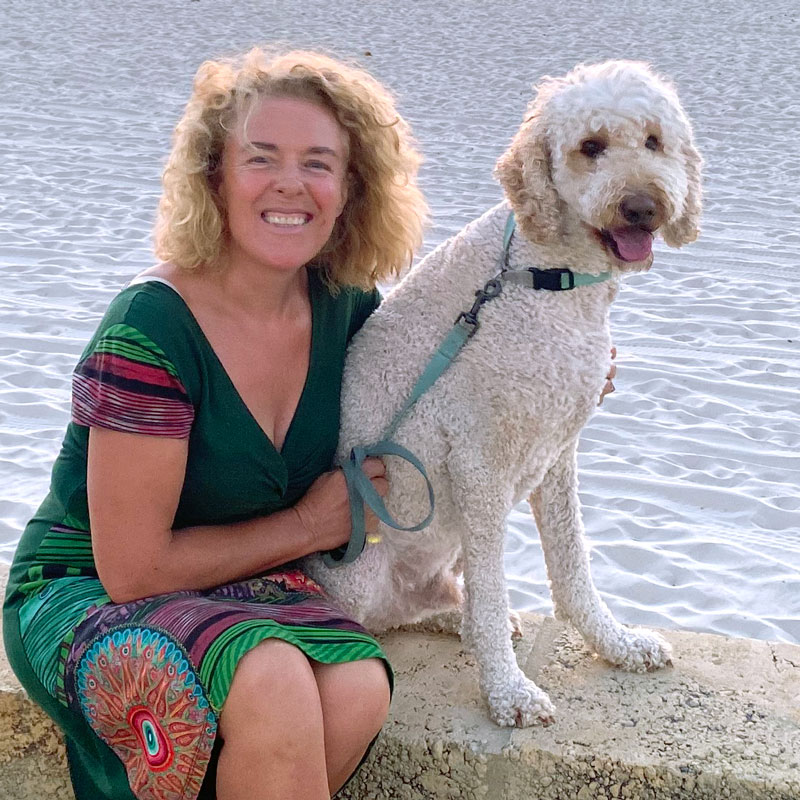The other night my son went to get an ice cream from the freezer in the garage. I figured it was best to keep such treats as far from reach as possible. I only found out about this when my husband went to fetch a screwdriver the next morning. He found the freezer door had been left wide open and the contents hadn’t done so well during the warm night. It had been 30 plus degrees Celsius the day before.
From puberty to menopause
What would your reaction be? Mine was, well, let’s just say there was a fair amount of huffing and puffing and then I had that familiar flash of heat as though a high-speed train had rushed through me. I observed my son while my husband chastised him, and it occurred to me that his teen brain was the cause of some serious angst. And, unlucky for him, his mother is going through menopause while he is going through puberty. So, we’re a right pair. The person I feel most sorry is my husband. He doesn’t seem to be going through any sort of hormonal changes (yet) and is therefore at a loss to understand how the people around him are apparently behaving so weirdly. He may yet arrive home on a Harley Davidson and that will be a sure sign of the onset of ‘manopause’. But for now, we rely on him to be the voice of reason.
Brain says so
While my son and I are battling with the chemical adjustments that we find overpowering at times, there is one saving grace. My prefrontal cortex is fully developed, thus allowing me to think ahead and assess risks. My son, on the other hand, has the disadvantage of not having a fully developed prefrontal cortex in his brain and therefore makes silly mistakes that get him into all sorts of trouble. It’s not his fault, this part of the brain is programmed to develop at a certain time and at its own pace. Adolescence will eventually lead him there. In the meantime, he has to manage as best he can.
Chemical warfare
While I endure the unwelcome effects of hormones being drained out of my body, my teenage kids are grappling with the surges of testosterone, estrogen and progesterone that signal the beginning of their sexual development. I haven’t forgotten the pre-menstrual tension I suffered badly with over the years and how it intensified all of my feelings at the time. It is a fact these hormones drive teenagers to seek emotionally charged experiences that bring with them intense feelings. To make matters more complex, the various neurotransmitters that control and regulate mood are influenced by sex hormones. For this reason, teenagers tend to experience highs and lows more quickly and, at the same time, have less control over their emotions. And there you have it, a recipe for an emotional rollercoaster ride on board the train of life.
Peer acceptance
I’ve become very aware of how both my 13-year old daughter, and 14-year old son, are slowly pulling away from us. They now value what their peers think more than what we say. Their lives seem to revolve around peer acceptance. Looking back at my own life, I can remember my desperate efforts to fit in. If someone mentioned a band they liked, I would also say I liked them, even if I didn’t. The fear of feeling socially isolated was real. It had to be avoided at all costs, otherwise my belief in myself was compromised.
So, while it’s not nice remembering that cringeworthy time of my life, it is helpful for me as I get to grips with what my kids are going through. They are at a tricky stage in their development. They want to be grown-up so they can have more freedom, yet they are sad because they are leaving their childhood behind.
The child within
We have a gallery of photos in our hallway that starts at the bottom of the stairs and the images progress, in chronological order, as you climb the stairs. I often catch my kids looking at themselves when they were very little, examining their innocence and discussing how much easier life was then. I recently started a conversation with them about how that innocent child is still a part of them.
One of the things that I find hard to accept is the self-critic that has found its way into their lives. My daughter looks at herself in the mirror and tells herself she is ugly, that her hair is too curly, that her skin is blemished, and she gets herself into a horrible state. I have taken to reminding her of the beautiful, innocent little girl inside of her who she has a duty to look after. She tells me that she feels judged by others and no matter how hard I might try to convince her that nobody can judge us without our permission, she insists that she lives in fear of being judged. This is sad. No wonder she suffers with teenage angst.
That inner voice
We all have an inner critic. It’s that voice inside that pipes up every now and again. It usually has nothing constructive to say which is why we need to challenge it. Instead of shutting it down though, we are better off asking it why it is there and question its purpose. In confronting it, we can learn to accept that it is a part of us, but it doesn’t mean we have to listen to it. There is a higher self that we can call on to remind us that we are just as good as anyone else, that we have a right to be here. I remember reading Desiderata, the prose poem written by Max Ehrmann, when I was in my twenties. I found real comfort in the lines “You are a child of the universe, no less than the trees & the stars; you have a right to be here.” I have printed this out and given a copy to my kids.
Top tips for dealing with teenage angst
These are the things I find useful when it comes to helping my kids through this change:
Talking is key. Acknowledge their angst and let them know that it is a completely normal part of this major life phase. Encourage them to talk about their feelings.
Remember that boys tend to internalise things more than girls hence the need to encourage them, in particular, to express what’s going on for them. It may take more time to prise it out of them, than it does to get to the heart of an issue with a girl. But each child is different and girls, too, can find it hard to open up.
- Remind them that, no matter what, they are loved, and they have a safe place called home where they are free to be who they are and will not be judged.
- Ensure they have ‘significant other adults’ who can act as a guiding light for them. There may be things they don’t want to discuss with their parents. They will need to have someone else they can talk to, face-to-face. I personally find this one hugely challenging as we live far away from close family and friends. But I’m working on it.
- We are the grown-ups in this relationship and have a responsibility to act as positive, kind, caring role models. They learn so much from what we do, and less from what we say. We need to model self-care. Giving up alcohol has been a huge step, for me, in teaching my kids about the need to do the right thing for our body, mind and soul. Showing kindness to others, helping those who are in need, and being a good citizen are powerful; they allow us to be a positive influence for our kids. They will look back at how they were brought up and emulate that in their adult lives. I do believe that we get the kids we deserve, however harsh that might seem sometimes.
- And here’s a tricky one, I may have to write an entire blog about this one: not putting too much pressure on our kids to achieve. There is enough pressure on them at school. As their primary carers, they need to know that we believe in them and love them whether they get all A’s or whether they fail. The important thing is that they try and don’t give up.
- And like I said last week, we need to help them manage what they are exposed to on social media, YouTube and TV. We want to bring hope and light to their lives, so in our house, we share positive stories with them at the dinner table.
A better world
Let’s do what we can to prepare this generation to be the best they can be. Hopefully it will ensure that the world will be a better place because of them.
And failing all that, here’s something I borrowed from the internet that you can stick on their bedroom door:
TEENAGERS: Tired of being harassed by your stupid parents?
ACT NOW! Move out, get a job, pay your own bills while you still know everything.
Best of luck to you on this, the most challenging of all journeys we will make in our lives. All aboard now, the train won’t delay.

